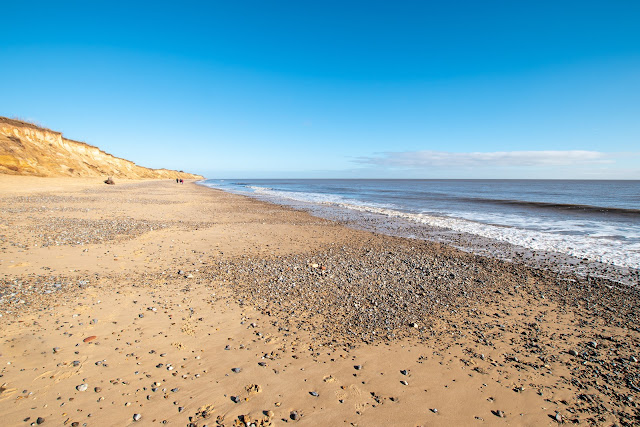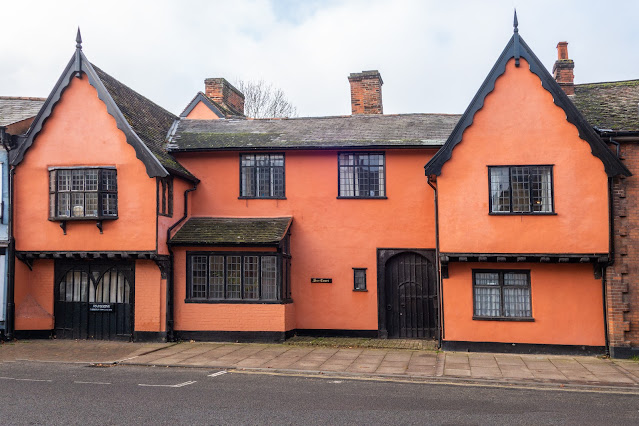The ghosts of Covehithe
Covehithe is a hamlet which lies on the North Sea coast around 4 miles (6.4 km) north of Southwold and 7 miles (11 km) south of Lowestoft.
In the Middle Ages Covehithe prospered as a small town (no signs of that today!) It takes its modern name from the de Cove family who held land there at that time, and the fact that it had a hithe, or quay, for loading and unloading small vessels.There is also archaeological evidence of the linen industry having been carried out at Covehithe until the 18th century.
So that`s where the wealth came from, like many ports on the coast, but now you could be forgiven for not knowing the village existed at all.

A walk along the beach on a gorgeous day, gives you some idea of how deserted the area has become today.. It is just so peaceful on a day like this but, I reckon, very scary in stormy seas.
The coastline in the Covehithe area suffers from the highest rate of erosion in the UK, and the settlement has suffered significant loss of land and buildings in the past. By the 17th century in fact, it had fallen victim, like nearby Dunwich, to coastal erosion.
There were, about 10 years ago (2009), many trees standing like sentinels along the beach. Great to photograph - but now gone !
The large church of St Andrew, which had been built on the back of its wealth, was largely pulled down, although its tall tower remains, and a smaller church was erected among the ruins in 1672. (below)
The west end of the 17th-century church is built against the tower. Its fabric includes much material re-used from the older church, and some brick. Its roof is thatched.
Plain and simple. Both the north and the south doorways have been re-used. The east window dates from the 19th century. At the west end are 15th-century pews with poppy-head carving. The wooden pulpit contains some 17th-century carving.
The church has this 15th-century carved octagonal font.
Walking around the ruins it is somewhat difficult to imagine the wealth which built this massive church. However, this was not uncommon in the middle ages. Much wealth was accumulated by the churches, which came to an end when Henry thought the church had far too much, and he and his mates could use it better. Like fighting the French etc!











Comments